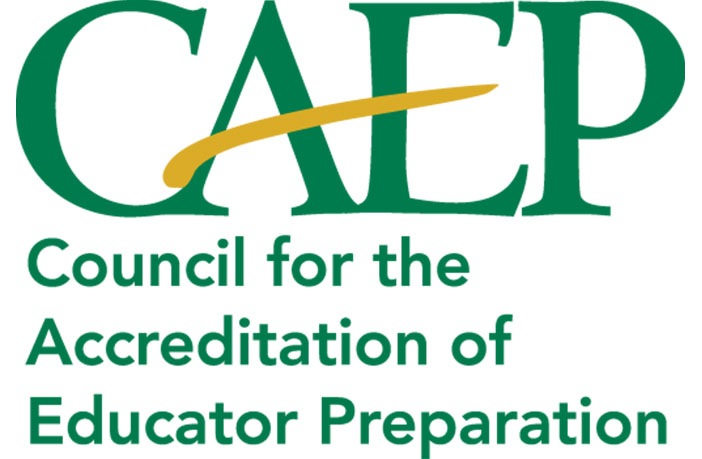Assessment and Accreditation
Accreditation Status
The University of Idaho, College of Education, Health and Human Sciences currently has programs accredited through significant organizations including:
The University of Idaho is the state’s oldest, constitutionally mandated, land-grant institution. All of our regional, national and specialized accreditations are recognized by the Council for Higher Education Accreditation (CHEA). In addition to the above specialized accreditations, the University of Idaho also is regionally accredited by the Northwest Commission on Colleges and Universities (NWCCU).
Why Accreditation Matters
Accreditation is an important topic for aspiring professionals. Attending a university that has received proper accreditation ensures that your curriculum has met the rigorous standards and high expectations set forth by well-respected higher education authorities. Accreditation affords Universities the chance to identify opportunities for continuous improvement while constantly strengthening their programs. Many agree that accreditation standards are the foundation of the profession and they are the driving force that raises the bar for excellence and professionalism in America’s schools, agencies and businesses.
Please watch this important video regarding degree and accreditation mills. According to CHEA, "Degree mills and accreditation mills mislead and harm. In the United States, degrees and certificates from mills may not be acknowledged by other institutions when students seek to transfer or go to graduate school. Employers may not acknowledge degrees and certificates from degree mills when providing tuition assistance for continuing education. “Accreditation” from an accreditation mill can mislead students and the public about the quality of an institution. In the presence of degree mills and accreditation mills, students may spend a good deal of money and receive neither an education nor a useable credential." Read more on CHEA’s website.
Title II Reports
- Title II Report-Traditional 2013 (PDF)
- Title II Report-Traditional 2014 (PDF)
- Title II Report-Traditional 2015 (PDF)
- Title II Report-Traditional 2016 (PDF)
- Title II Report-Traditional 2017 (PDF)
- Title II Report-Traditional 2018 (PDF)
- Title II Report-Traditional 2019 (PDF)
- Title II Report-Traditional 2020 (PDF)
» To learn more about Title II annual reporting, visit the Title II, Higher Education Act website.
Council for the Accreditation of Educator Preparation (CAEP)
The University of Idaho, College of Education, Health and Human Sciences, Teacher Preparation Program (EPP) is currently accredited at the national level through the Council for the Accreditation of Educator Preparation (CAEP) and at the state level by the Idaho State Board of Education – Professional Standards Commission (ID-PSC). Through these accreditations the EPP continues to provide candidates with high quality programs derived from National and State standards.
The EPP completed their most recent review cycle in the spring of 2021, officially completing the transition from the legacy accreditor: National Council for Accreditation of Teacher Education (NCATE) to full accreditation on a seven-year review cycle through CAEP. Primary Licensure Areas identified by CAEP are reviewed in conjunction with the State of Idaho Endorsement and Enhancement Areas approved through the ID-PSC.
CAEP Advanced Level Programs – Primary Licensure Areas
- Educational Leadership (M.Ed. & Ed.S.Ed.Ldrshp.)
- Special Education (M.Ed.)
CAEP Initial Level Programs – Primary Licensure Areas
- Career and Technical Education (B.S.Ed.)
- Elementary Education (B.S.Ed.)
- Secondary Education (B.S.Ed.)
The ID-PSC makes recommendations to the State Board of Education and renders decisions that provide Idaho with competent, qualified, ethical educators dedicated to rigorous standards, pre-K-12 student achievement, and improved professional practice.
CAEP accreditation provides assurance that the educator preparation program meets or exceeds rigorous national standards and that candidates receive comprehensive preparation as high-quality P-12 teachers and administrators. CAEP advances equity and excellence in educator preparation through evidence-based accreditation that assures quality and supports continuous improvement to strengthen P-12 student learning.
» Learn more about the University of Idaho’s accreditation status by visiting the Council for the Accreditation of Educator Preparation (CAEP) website.
» To review all CAEP accredited providers by state and/or provider name, visit the Council for the Accreditation of Educator Preparation (CAEP) website.
The PDF documents on this page include data and analyses for the eight CAEP annual reporting measures. These measures support all parts of the University of Idaho’s accreditation process for teacher preparation programs. Annual reports are made available each spring and date back to 2014-15.
|
CAEP Accountability Measures |
|
| Impact Measures | Outcome Measures |
| Measure 1 (initial) Completer effectiveness and impact on P-12 learning and development (Component R4.1) |
Measure 3 (initial and/or advanced) Candidate competency at program completion (R3.3 | RA3.4) |
| Measure 2 (initial and/or advanced) Satisfaction of employers and stakeholder involvement (Component R4.2 | R5.3 | RA.4.1) |
Measure 4 (initial and/or advanced) Ability of completers to be hired in education positions for which they have prepared |
Initial Level Programs are defined by CAEP as programs at the baccalaureate or postbaccalaureate levels leading to first time licensure, certification, or endorsement that are designed to develop P-12 teachers.
Advanced Level Programs are defined by CAEP as educator preparation programs at the post-baccalaureate or graduate levels leading to licensure, certification, or endorsement.
CAEP Annual Reports
- Annual Reporting Measures - AY2014-15 (PDF)
- Annual Reporting Measures - AY2015-16 (PDF)
- Annual Reporting Measures - AY2016-17 (PDF)
- Annual Reporting Measures - AY2017-18 (PDF)
- Annual Reporting Measures - AY2018-19 (PDF)
- Annual Reporting Measures - AY2019-20 (PDF)
- Annual Reporting Measures - AY2020-21 (PDF)
- Annual Reporting Measures - AY2021-22 (PDF)
- Annual Reporting Measures - 2023 (PDF)
- Annual Reporting Measures - AY2023-24 (PDF)
To learn more about CAEP annual reporting, accreditation standards and processes, visit the Council for the Accreditation of Educator Preparation website.
For additional questions about the University of Idaho’s College of Education, Health and Human Sciences, Teacher Preparation Programs accreditation and annual reporting processes, please contact Taylor Raney, Associate Dean of Undergrad Studies, at 208-885-1027 or via email at tcraney@uidaho.edu.
Commission on Accreditation of Athletic Training Education (CAATE)
 The University of Idaho, College of Education Health and Human Sciences: Master of Science in Athletic Training (M.S.A.T.) is accredited through CAATE on a ten-year cycle. The current cycle began in 2018 with the next review taking place in 2028.
The University of Idaho, College of Education Health and Human Sciences: Master of Science in Athletic Training (M.S.A.T.) is accredited through CAATE on a ten-year cycle. The current cycle began in 2018 with the next review taking place in 2028.
The Commission on Accreditation of Athletic Training Education (CAATE) which is a 501(c)(3) non-profit organization recognized as an accrediting agency by the Council of Higher Education (CHEA). The CAATE’s mission is to: define, measure, and continually improve AT Education. For more information regarding the CAATE or the current U of I M.S.A.T. accreditation standing please see the CAATE website.
The PDF document on this page reports on the MSAT Program BOC, Inc. Certification Examination Pass Rate, Retention Rate, 3-Year Graduation Rate, and Graduate Employment/Placement data.
Council on Accreditation of Parks, Recreation, Tourism and Related Professions (COAPRT)
The University of Idaho Recreation, Sport, and Tourism Management (RSTM) program is accredited by the Council on Accreditation of Parks, Recreation, Tourism and Related Professions (COAPRT). The Council on Accreditation of Parks, Recreation, Tourism and Related Professions (COAPRT) accredits baccalaureate programs in parks, recreation, tourism, sport management, event management, therapeutic recreation, and leisure studies offered at regionally accredited institutions within the United States and its territories, and at nationally accredited institutions in Canada, and Mexico.
The PDF document on this page reports on the aggregated RSTM Program Learning Outcomes and program mission, vision, and values reflecting program academic quality and student achievement.










